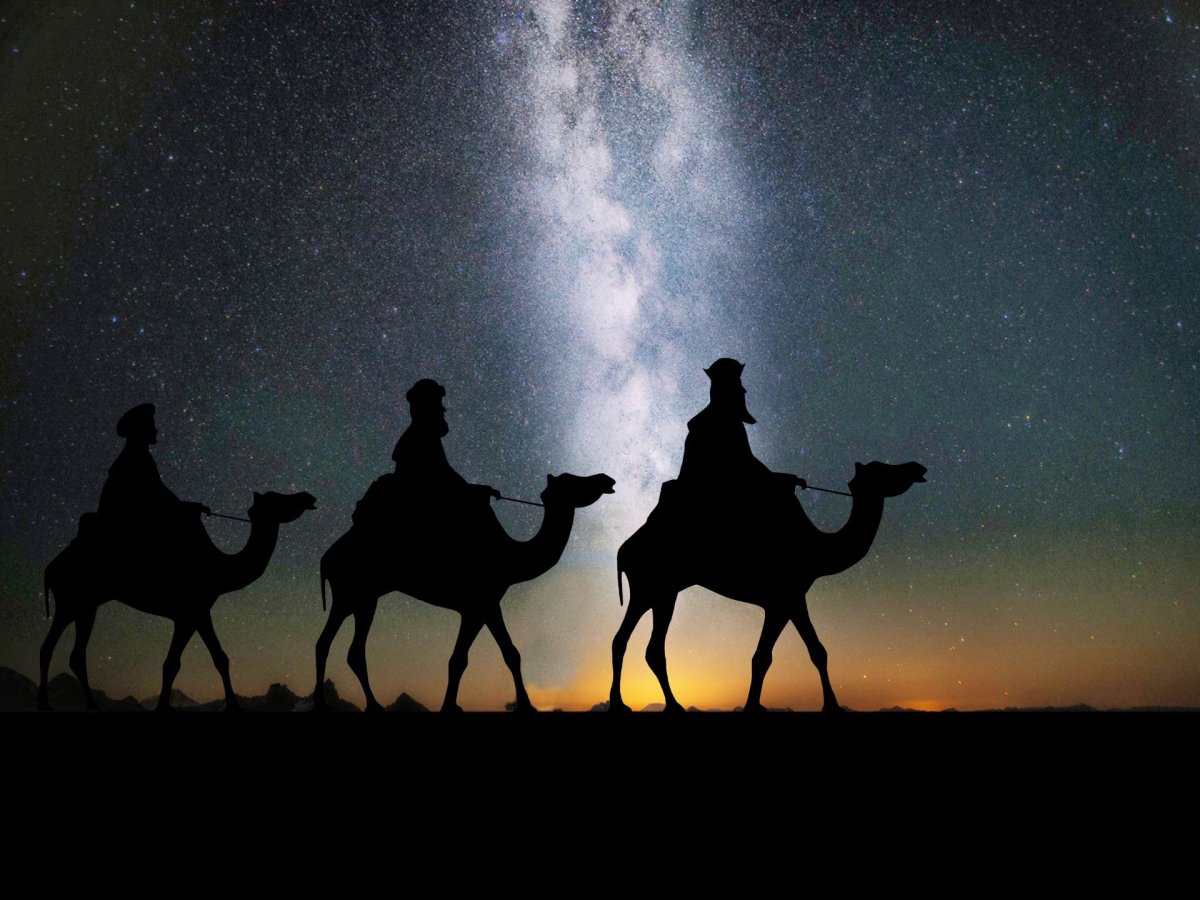Updated | Christians all around the world today will celebrate the Epiphany, the day when the wise men are said to have visited baby Jesus in Bethlehem bearing gifts of gold, frankincense and myrrh. Yet despite their outsized presence in the narrative around Christmas and Jesus's birth, the tale of the wise men derives from a pretty slim mention in the second chapter of the Gospel of Matthew in the New Testament. A much grander account appears in an ancient Christian legend that offers a first-person narrative of the coming of Jesus from the Magi themselves.
Brent Landau, a biblical scholar at the University of Texas at Austin, rediscovered the Syriac manuscript in the Vatican archives some years ago and became the first person to translate it to English with his book Revelation of the Magi.
Landau, who modestly refers to himself as "more or less" the world's leading expert on the Magi (a term that for practical purposes here is interchangeable with kings or wise men), makes clear that the text is apocryphal, meaning not a canonical account accepted the way the Gospel of Matthew is. But that doesn't diminish its value as a one-of-a-kind window into what early Christians believed. As popular as Epiphany celebrations are on January 6 (the "Twelve Days of Christmas" refers to December 25 through January 5) the Syriac tale of the Magi still isn't common knowledge.
"It's a really weird story," Landau told Newsweek. "There's a lot of stuff we associate with the Gospel of Matthew, above all the fact that there's supposed to be three of them. But that's never explicitly mentioned; it's deduced from the fact that there are three gifts, so early Christians just kind of figured maybe there were three men. There was a lot of early Christian speculation about who these figures were."
The text dates to the second or third century and places its characters in what corresponds to modern-day China—a land called Shir, said to be on the shore of a great ocean at the easternmost point of the inhabited world.
"I don't think it's actually written by the real wise men," Landau said. "I don't think there actually were real wise men; I think that story about them coming to Jesus is a legend Matthew developed to talk about the significance of Jesus's birth."
Even if there were real, historical wise men, the text probably still wouldn't have been written by them. It was common practice at the time to attribute writings to famous figures, Landau said.
"One thing that really stands out is what it does with the star of Bethlehem," Landau said. "There are lots of early Christian interpretations of the star, whether it was an angel or a holy spirit. But this text says the star is Jesus himself, that he's a divine being and able to transform his appearance as a shape-shifter. When the Magi first see the star, it comes down to where they're praying and transforms into a little boy."

In the Gospel of Matthew account, the star behaves strangely too, traveling ahead of the Magi to Bethlehem and coming to rest over the site of Jesus's birth. But the Bible still doesn't say anything about how the Magi knew what the star's particular significance was, and definitely doesn't say anything about the star and Jesus being the same being.
In the Syriac text, the Magi are the descendants of Seth, who, according to the Book of Genesis, was Adam and Eve's third son. Seth is a rather overlooked character today compared to brothers Cain and Abel, but according to Landau, early Christians and Jews were "fascinated" by him and considered him of special importance. The Magi anticipate the star and its significance because of a prophecy written down by Seth—which was first told to him by Adam—about the coming of a star that would signal the birth of God in human form.
"It's an incredibly detailed, complex story," Landau said. "Whoever came up with it had an incredible imagination."
Correction: A headline in an earlier version of this article incorrectly attributed the number of the wise men to the biblical account.
Uncommon Knowledge
Newsweek is committed to challenging conventional wisdom and finding connections in the search for common ground.
Newsweek is committed to challenging conventional wisdom and finding connections in the search for common ground.
About the writer
Kastalia Medrano is a Manhattan-based journalist whose writing has appeared at outlets like Pacific Standard, VICE, National Geographic, the Paris Review Daily, ... Read more
To read how Newsweek uses AI as a newsroom tool, Click here.








